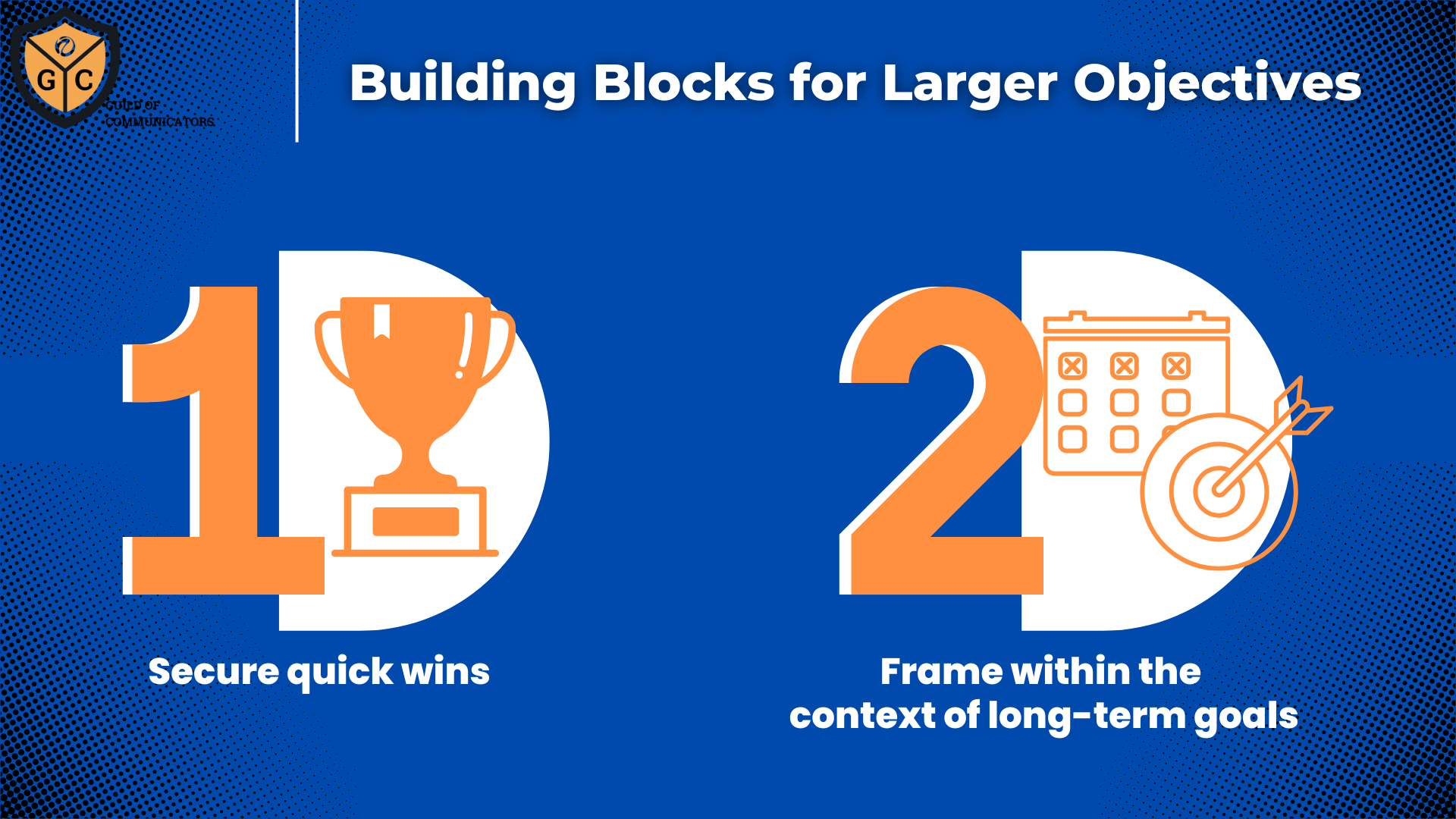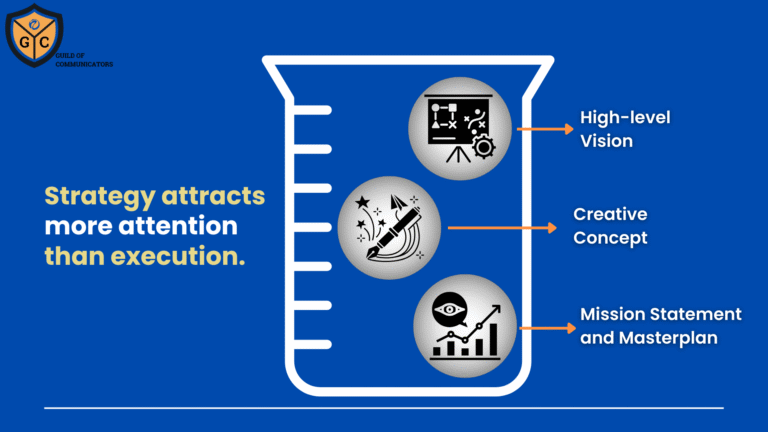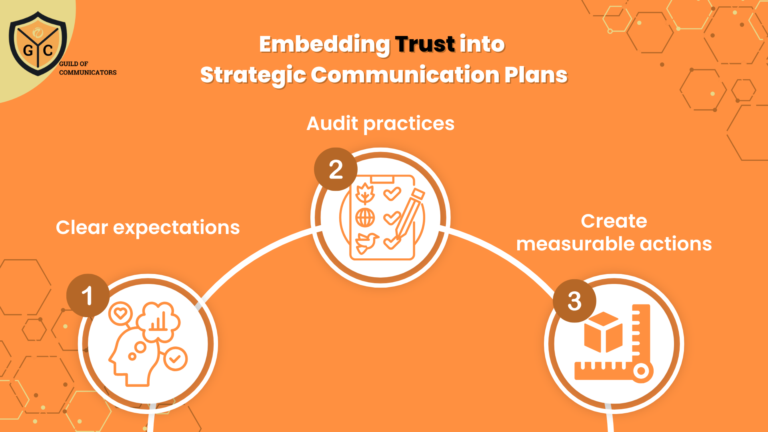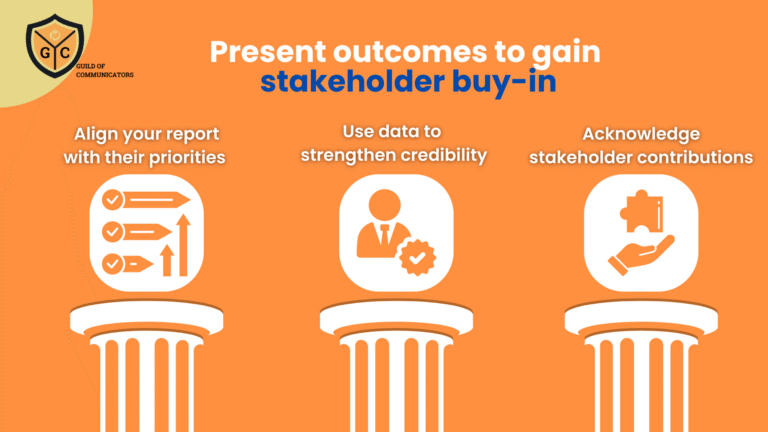Communicators are facing a unique challenge in 2025.
The current business landscape prioritises short-term operational execution over medium- and long-term strategic thinking.
This environment, which often rewards quick wins, places pressure on communicators to deliver outputs that may not fully align with stakeholders’ broader business outcomes.
To navigate this landscape, communicators must develop a strategic mindset and the agility to address immediate needs while fostering a foundation for long-term impact.
Becoming a Trusted Advisor Amid Short-termism
As business leadership leans towards short-term goals, communicators find themselves navigating a delicate path. They are called to deliver quick, measurable results while simultaneously advocating for a strategic vision that often requires time and patience to realise. This dynamic can be challenging, especially when stakeholders are primarily focused on immediate metrics of success.
Becoming a trusted advisor in this setting requires communicators to continuously demonstrate the value of integrating both immediate and future perspectives. When communicators can show how today’s efforts contribute to tomorrow’s growth, they highlight the relevance of strategic insight without detracting from the urgency of current goals. This balance not only underscores their role as strategic business partners but also builds credibility with stakeholders who may be focused primarily on short-term gains.
To maintain this dual focus, communicators must develop an understanding of how their immediate efforts can serve as building blocks for larger objectives. By framing quick wins within the context of long-term goals, communicators can reassure stakeholders that they are prioritising immediate needs without losing sight of the organisation’s broader vision. This approach allows them to advise effectively on both fronts, establishing their presence as trusted advisors amid ongoing short-term pressures.
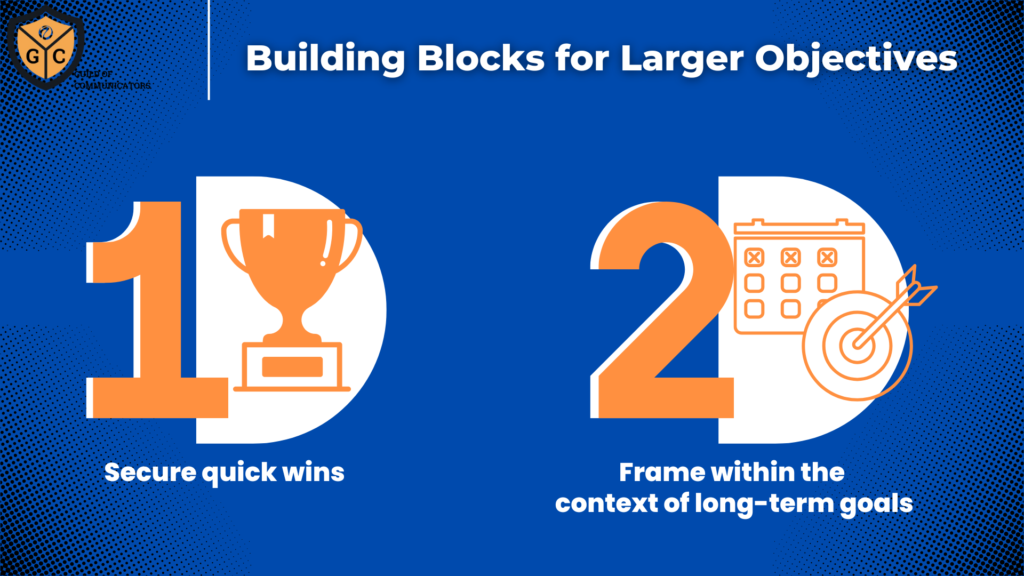
Observation 1: The Pull of Short-term Execution
The first observation reflects the continued prevalence of short-termism in many organisations. This focus on immediate results creates both challenges and opportunities for communicators. In a climate where short-term execution is prioritised, communicators have an opportunity to step into the role of trusted advisors, providing strategic counsel that goes beyond day-to-day demands.
Short-termism may drive rapid wins, but communicators who focus solely on immediate results risk overlooking the broader value of strategic insights.
A skilled communicator can provide valuable perspectives that align immediate actions with a long-term vision, ensuring that the organisation’s communications approach remains resilient and adaptable.
This approach also requires a shift in mindset—from simply delivering on today’s needs to guiding stakeholders on the importance of maintaining a strategic perspective. By consistently championing a balance between quick wins and long-term goals, communicators can enhance their credibility and demonstrate their value as essential partners in achieving sustainable success.
Observation 2: Strategic Responsibilities in High-Stakes Moments
The second observation highlights a reality within this short-term focused environment: communicators are increasingly called upon to anticipate potential issues and manage crises effectively.
While short-term objectives drive many organisational activities, communicators still play a pivotal role in identifying risks and preparing for the unexpected.
Anticipating issues requires communicators to stay attuned to both internal and external dynamics, recognising emerging patterns that could impact the organisation. By providing early insights on potential risks, communicators can position themselves as integral to the organisation’s resilience strategy, contributing to a proactive crisis management approach.
This responsibility also includes managing crises. A communicator’s calm, decisive actions during challenges reinforce organisational stability and underscore the critical role of communications in maintaining trust.
By proactively preparing for crises, communicators help ensure that short-term gains do not come at the expense of long-term resilience.
Observation 3: Bridging the Gap in Skills and Leadership
The third observation points to a skills gap within the communications function, particularly between communications leadership and their operational team. As demands grow for both strategic thinking and tactical execution, it becomes increasingly important for communicators to bridge this divide.
Effective communications leadership today requires a nuanced understanding of both high-level strategy and day-to-day operations. For many teams, however, there remains a noticeable gap between these two areas, which can hinder the team’s overall effectiveness. By upskilling team members and fostering an environment where strategic thinking is encouraged, communications leaders can close this gap.
Upskilling goes beyond tactical abilities; it helps team members develop critical thinking skills for informed, strategic decisions. By fostering continuous learning and growth, communications leaders empower their teams to take on more responsibility, strengthening collective capability to drive results.
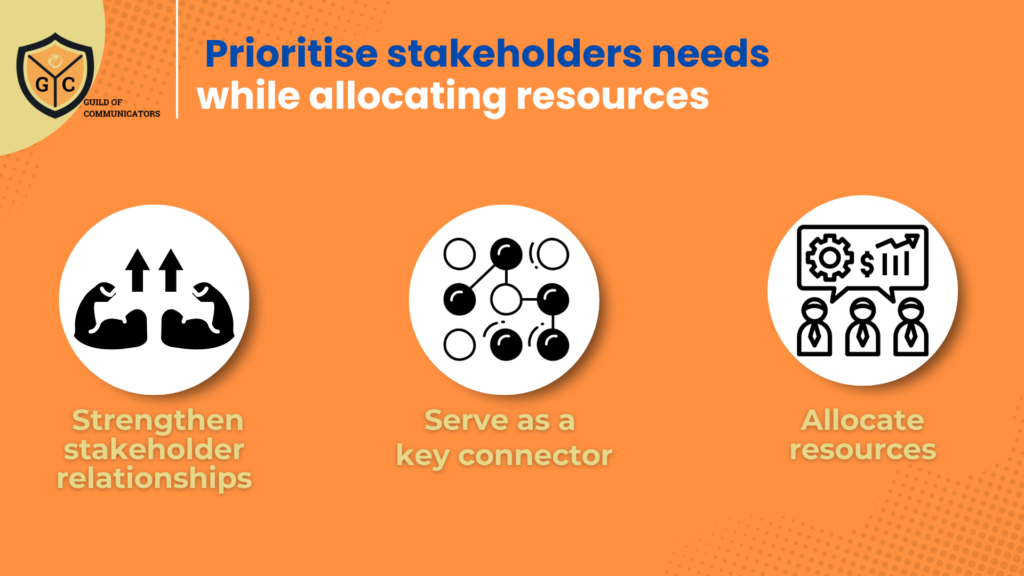
Connecting Teams, Skills, and Strategy
Bringing these observations together requires a balanced approach to both stakeholder engagement and team development.
As communicators work to strengthen their relationships with stakeholders, they must also serve as key connectors between different business functions, ensuring that each team member has the resources and support needed to grow.
In practice, this means prioritising stakeholder needs while also allocating time and resources to help the team enhance their skills.
To achieve this, communicators build credibility by aligning their counsel with organisational priorities, showing how strategic communications contribute directly to core objectives. This involves not only delivering on immediate tasks but also guiding stakeholders on how communications can support long-term goals.
Earning the trust of stakeholders also requires communicators to listen actively and understand the pressures that influence short-term business decisions. This empathy allows communicators to frame their advice in a way that resonates, highlighting how strategic planning can support short-term targets without compromising future opportunities.
Effective communicators recognise that their success hinges not only on meeting immediate demands but also on nurturing the team’s potential to handle future challenges.
By continuing and reinforcing their role as the bridge between stakeholders and business functions, communicators can advocate for resources, facilitate cross-functional collaboration, and help create a more cohesive, agile function.
This balanced approach positions communicators as critical contributors to organisational growth, capable of navigating both current demands and long-term ambitions.
*****
Join the Guild of Communicators at www.gocommunicators.com.
The Guild of Communicators (GoCommunicators) stands as the preferred community for communicators seeking to elevate their craft. Through our Centre of Excellence, we provide best-in-class frameworks, fit-for-purpose resources, and opportunities that support members in achieving professional excellence.
We provide the following resources, tools and opportunities to members:
- Best-in-Class Resources: We provide our members with access to frameworks, playbooks and tools that empower them to achieve and maintain professional excellence.
- Continuous Learning and Growth: Through our comprehensive training programmes, workshops, delivered digitally, 24/7 and in-person, we support the ongoing professional development of communicators.
- A Supportive Network: GOC fosters a vibrant community where communicators can connect, collaborate, and support each other, creating a network that champions mutual growth and success.
- Shared Knowledge and Expertise: Our members benefit from the collective wisdom and experience of a diverse group of communication professionals, enhancing their skills and perspectives.
GoCommunicators is dedicated to amplifying the impact and value that communicators bring to their organisations, highlighting their crucial role in driving success and growth.
We equip our members with the strategies and tools needed to become influential leaders and business partners within their organisations, enhancing their ability to drive positive change and outcomes.
Through our support and resources, communicators can demonstrate clear, measurable outcomes that showcase their value and impact, reinforcing their importance to their organisations.
Join the Guild of Communicators at www.gocommunicators.com.
Subscribe to join over 1500+ communicators and brands getting value every Tuesday while reading A Communicator’s Perspective, our weekly newsletter.

